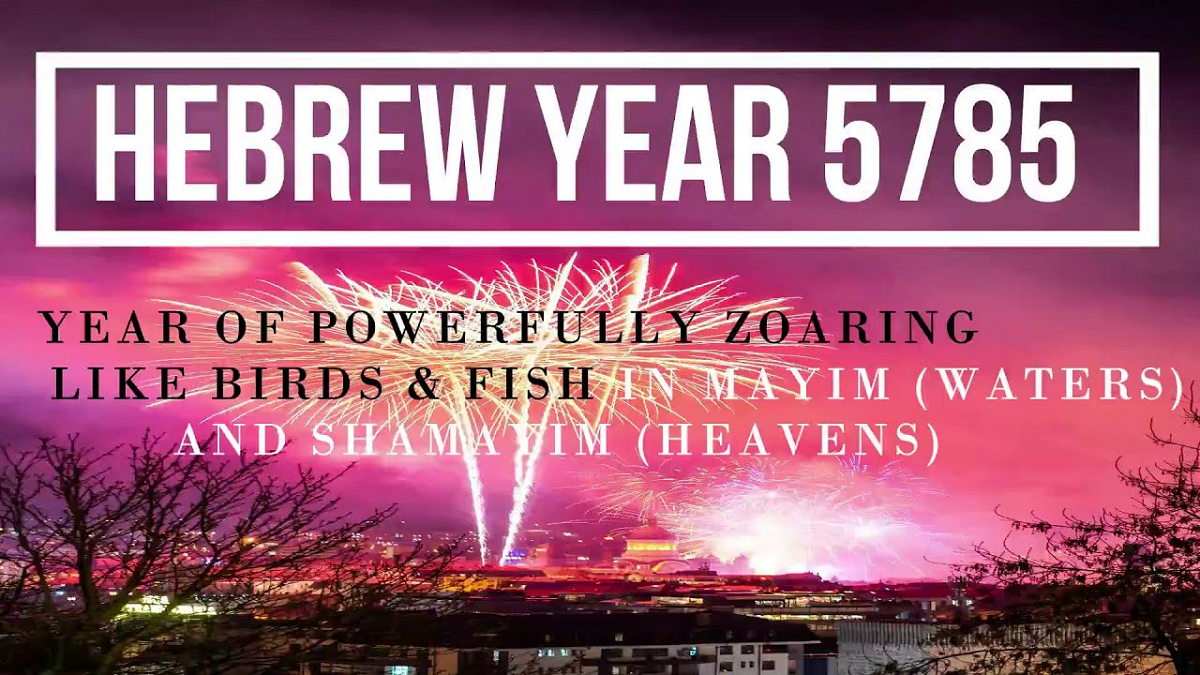Rosh Hashanah, the Jewish New Year, is being celebrated across the world from October 2, 2024, Wednesday dusk, to October 4, 2024, Friday dusk, as it marks the start of the 5785 Hebrew year.
Key Takeaways
- Jews around the world are celebrating Rosh Hashanah from October 2 to October 4, 2024.
- Rosh Hashanah is considered the start of the year 5785 in the Hebrew calendar.
- The Jewish New Year coincides with the first and the second of the seventh month of the Hebrew calendar, Tishrei.
- Rosh Hashanah also marks the start of holy days in Jewish culture.
Currently, the Jewish people in Isreal and other parts of the world, are celebrating Rosh Hashanah which means the New Year of Jewish people who follow the Hebrew calendar. Since people in large numbers are calling each other and connecting with their old friends, family members, and relatives to celebrate Rosh Hashanah, people of other cultures and traditions were left in a frenzy about what Rosh Hashanah means. But before learning about Rosh Hashanah, you need to understand the meaning of the 5785 Hebrew year. If you are also initiated about the 5785 Hebrew year meaning, then this article is for you. Here we have shared all the imperative details that you need to know about the 5785 Hebrew year meaning. Delve into the details and find more information about it. Scroll down the page.
The 5785 Hebrew year is the year nine of the Metonic cycle. The Jewish year 5785 is divided by 19 which gives the remainder of 9 which is considered as the year 9 of the Metonic cycle. Furthermore, the Jewish year used anno mundi year in which the year of creation (Rabbinical Chronology- 3761 BCE) is taken as year 1. The Jewish new year spans two days which coincide with the first and second of the seventh month of the Hebrew calendar. Tishrei is the seventh month in the Hebrew calendar. Rosh Hashanah which is currently being celebrated by all the Jewish people all around the world, is the starting of the Jewish New Year or the 5785 year according to the Hebrew calendar.
Exploring Rosh Hashanah: Understanding the Significance of the Jewish New Year and the 5785 Hebrew Year!
This year, the Jewish New Year, or Rosh Hashanah started on Wednesday, October 2, 2024, during the sunset and it will end on Friday, October 4, 2024, after the sunset. Furthermore, Rosh Hashanah is also called the head of the year. It is observed and celebrated from the eve of Jewish New Year’s first day. People across the world, celebrate this holiday in different styles with deep and meaningful traditions such as a kosher animal horn blown 100 times to start the seventh month of Hebrew year and the blowing of the shofar. According to Jewish culture, the blowing calls for a spiritual awakening and renewal. Therefore, it is an important element during the celebrations of Rosh Hashanah.
The Jewish families gather to make blessings and have a ritual dinner which must feature dishes like apple with honey, gefilte fish, and “lecaij”. As far as we know, an apple with honey symbolizes the wish for a sweet year, and gefilte fish and “lecaij’ (a honey dessert) evoke omens of prosperity. According to Jewish tradition, on Rosh Hashanah, God evaluates whether humanity is worthy of another year on earth. Thus, Rosh Hashanah is also known as the Day of Judgement. Stay tuned.
In Case You Didn’t Know
- Rosh Hashanah comes as a hope for sweat future and a year of peace, health, and prosperity.
- Jews greet each other during this holiday with the term “Shanah tovah” which means “Good Year”.
- People accompany this term with the Hebrew blessing ‘Leshanah tovah tikatev vetejatem’ dubbed as “May you be inscribed and sealed for a good year”.
